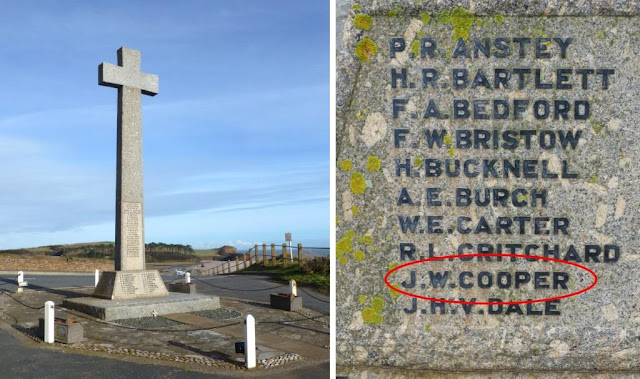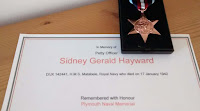WW2 100 - 17 June 1940 - A Casualty of Operation Ariel: Aircraftman 1st Class James William Cooper (1920-40), Royal Air Force, 98 Squadron

Continued from 8 June 1940 Victim of a cover-up? Lieutenant Cyril Howlett (1913-40) https://budleighpastandpresent.blogspot.com/2020/11/ww275-8-june-1940-victim-of-cover-up.html It wasn't easy to find out more about J.W. Cooper, especially as the Commonwealth War Graves Commission website, where the deaths of so many victims of WW2 are recorded, made no mention of Budleigh. And the Devon Heritage website, oddly, lists him as ‘Not yet confirmed’. So, many thanks to Facebook’s Budleigh – Past and Present group member Jan Farrant for helping to identify him. James William Cooper had strong local roots. He was born in Budleigh Salterton in 1920 to William James Cooper and May Cooper, and was the eldest of seven children. I’ve been told that the family were living in Boyne Road. So it is possible that his siblings are still alive and in this area, and might even be able to provide a photo of James. James William’s father was born in Sidmouth in 1894, served in W...
